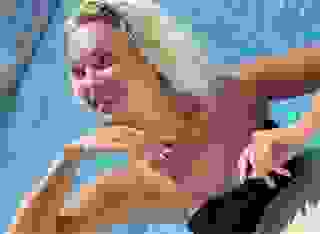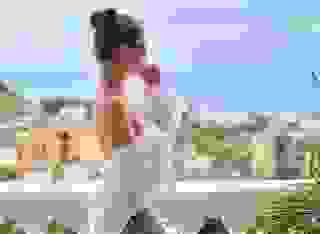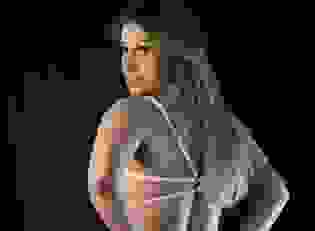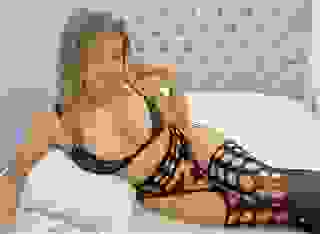Note: You can change font size, font face, and turn on dark mode by clicking the "A" icon tab in the Story Info Box.
You can temporarily switch back to a Classic Literotica® experience during our ongoing public Beta testing. Please consider leaving feedback on issues you experience or suggest improvements.
Click hereWhile my acclimation to London was somewhat fraught, I took to Bedford like a house afire. I reveled in the excitement of the laboratories and classrooms and luxuriated in the extensive resources of the college library. Although my scientific knowledge was haphazard, my practical skills—gained at the feet of Dr. Whitestone and Mrs. Drappit—far exceeded those of my classmates. Under Dr. Jekyll's tutelage, I soon became proficient in the laboratory, and my own studies in biology and botany—areas of far less interest to him—ensured that I had a great deal to offer as his chemicals lab assistant and medical teaching aide. By the end of my first year, he would on occasion cede control of the classroom to me, where I instructed his students in the proper suturing and cauterizing of a wound, the best way to prepare and apply a poultice, or the various methods for treating an abscess. Sometimes, I would catch him staring. I was both disquieted and delighted to see that his hungry eye had finally set itself upon me.
There were times when his gaze grew so voracious, so acute, that I wondered at the forces within him. The breadth of his hunger and the strength of will required to hold it at bay. And I felt the answering force in myself, the desperate need to match spirits and intellects with this extraordinary man.
*
In my second year at Bedford, I began to observe significant changes in Dr. Jekyll. The majority of the time, he retained that razor-sharp focus that set him far beyond other men, an acuity that was reflected in his exacting grooming and the precision of his appearance. Even in civilian clothes, he carried the bearing of a soldier, with collars sharply pressed, hair precisely combed, and beard cleanly shaven.
However, as the biting cold of late Autumn began to grip the streets of Marylebone, the doctor's fastidious nature often gave way to a shabby neglect, both in his presentation and in his demeanor. His once-sharp collars displayed a decided roll at the neck, and his immaculate cravats began to show spots and blemishes. There were days when the lines of his face grew heavier, and he appeared depleted, as if something was draining the very vitality from his body.
More troubling was the look in his eye. The frosty glare that had previously searched the world for an intelligence to meet his own now gave way to the emptiness that I had once marked in his fellows. At times, his exacting brilliance appeared fogged and dulled by exhaustion and distraction.
This creeping lassitude also manifested in the laboratory, as an indolent disregard began to displace his former fastidiousness. This culminated one day when he began to apply fulminate of mercury to a heated beaker, a mishap that may have had explosive consequences for the laboratory and its occupants. Shrieking, I ran across the laboratory and stayed his hand before he undertook the dangerous procedure. A look of rage crossed his face, before he noticed what he had been about to do. He apologized immediately, citing a lack of sleep as the cause of his distraction.
It was at approximately this time that I first encountered Edward Hyde.
*
After our abortive first meeting, it was a long time before I saw Hyde again, but I would sometimes imagine that I felt his gaze upon me—a ravenous, measuring look that seemed to cling to my clothing and weighed upon my limbs like the sticky, polluted fog that rose from the Thames after a heavy rain. A viscid putrescence that I couldn't wash off and was unable to escape.
Meanwhile, rumors began circulating about a fiend haunting Marylebone. According to various reports, one night, in the small hours, a man had trampled a small child not far from our house. A crowd rapidly assembled, and the gentleman—whose name was given as Mr. Hyde—was allegedly forced to bribe the child to forgo proffering charges.
In light of the growing disquiet in the community, Poole declared that it was unsafe for Mrs. Willoughby and me to walk the streets unattended, and he ran himself ragged in his attempts to protect the pair of us. These efforts were further complicated by Dr. Jekyll's apparent determination to absent himself from our home. He often stayed late at Bedford, or shut up in his laboratory, which was located in the basement and had a separate egress onto the street. He forbade us from joining him in his subterranean chambers, and also began to take his meals outside the home. Before long, I noticed, days would pass in which I would only see him in the classrooms, halls, or grounds of the college. While he remained pleasant in his interactions, a growing distance stretched between us.
We might have continued in this vein indefinitely were it not for my end of term examinations, which required that I spend long hours cloistered with my textbooks, notes, and papers. For the most part, I studied in my chamber, but I also made use of the parlor, as it had a larger working space and better light.
Late one evening, as I was in my fifth hour of studying the circulatory system and third hour of fighting off an encroaching ennui, I decided that my own circulatory system was in need of more stimulation, so I adjourned to the parlor. Barely had I begun arranging my notes, however, before I heard the sound of glass breaking.
"Mrs. Willoughby?" I called, assuming that the cook had dropped something.
Hearing no response, I went to the kitchen, which I found empty. Investigating further, I heard another crash, followed by a scuffling, scraping sound.
It was coming from the basement.
Remembering Dr. Jekyll's admonitions regarding trespassing in his laboratory, I paused at the head of the stairs, torn between alarm and obedience. Then I heard the scream.
I raced to the cellar, attended by the sounds of further crashing and cries. The laboratory's red baize door was closed, but I was able to force my way inside.
The chamber was barely recognizable. On my last visit, it had reflected Jekyll's meticulous order, with instruments and supplies set in gleaming rows. Now the laboratory appeared to have been ravaged. Broken flasks were strewn across the floor, accompanied by the splintered, scattered remains of packing crates. The work table was littered with dustings of chemicals, shattered apparatus, scraps of notepaper, pools of spilled liquid, and an assortment of other detritus.
Most disturbing of all was the Doctor. As I entered the room, he appeared to be caught in the grip of some form of seizure. In the flickering light of the Bunsen burner, I watched as he struggled to remain upright. His muscles clenched, and a grimace gripped his visage.
His eyes widened as he saw me. "Lanyon! N-no!" he croaked, his pallid, cadaverous face caught in a spasm. "L-leave!"
I was momentarily struck dumb as I watched him staggering and struggling to stay upright. "Dr. Jekyll! What is happening? I'll fetch Poole!"
"NO!" he choked out. "N-NO! No Poole! Leave me! Return to your chamber!"
"I will do no such thing!" I exclaimed, but my exhortation fell on deaf ears. The Doctor collapsed, fingers scrabbling at the table as he tumbled behind it. Dodging the broken glass and debris littering the floor, I picked my way to the other side of the table, determined to administer what aid I might. When I reached Jekyll, I found him curled into a tight ball, his muscles seizing as if he was caught in the grip of an uncontrollable spasm.
And then his eyes opened. They were tan.
And then he smiled. The butcher's grin.
I froze as he began to stagger to his feet. His eyes met my own and I was snared by the cruel intelligence in their depths. I struggled to back away.
"Ah, a sweet sparrow lights in my chamber! Where are you going, young maiden?" he rasped. "Are we to end our reunion so soon?"
I was silent, struck dumb with terror. This creature was so different from Dr. Jekyll, so utterly alien that I wondered for a moment what had happened to my companion and benefactor. Had this fiend somehow disposed of the doctor? Yet, even in my confusion, I realized that the truth was even more alarming. This man before me had somehow taken the place of my friend and mentor.
"I-I must be going," I gasped. Gathering my wits, I backed toward the door. "Poole!" I screamed. "Come quickly!"
Grinning, Hyde advanced toward me.
My sandal caught on a piece of splintered crate and I lost my footing. The man was immediately upon me, his arms arresting my fall. "There's no need for that, sweet sparrow," he husked. "We hardly need another witness to our conversation, do we?"
That voice! A voice that hinted at dissolution and decrepitude, of sly knowledge gained at steep cost. I was transfixed. Torn between terror and fascination, I felt his hands snatching at my shirtwaist. Tearing at it. My eyes locked on his. Tan eyes. I barely felt his hands on my flesh. His mouth on my neck. The sharp clasp of his teeth scraping at my flesh as his hands grasped at my breasts.
Darkness claimed me, and that is all I remember.
*
Chapter Three: Angels and Demons
Excerpts from the journal of Henry Jekyll
29 July 1893
Last night, the dreams returned:
Faces—laughing. Screaming. Spittle-flecked lips stretched over yellow teeth.
I float down the sidewalk on wings of liquor and glee,
My arms flail at the silent buildings, and I take a bow. Shriek my delight at their dark windows.
The echoes laugh back at me.
So very FREE.
She comes to me on her knees. Creamy breasts shaking in spasms. Legs wrapping around me,
pulling
me
closer.
Flesh under my hands. Squeezing. Twisting.
Flesh
under
my
teeth.
Grey eyes wide with fear and excitement—
*
When I awake, the images are still playing in my mind. For a moment, I do not know where I am.
I recognize my bed. My wife, asleep beside me. I scrabble for my journal. Flipping through pages of neat, even notes, I find his now-familiar scrawl:
Dearest Henry,
Lanyon is mine. I will take her when I want her.
Ever yours,
Edward Hyde
It's not a dream. Not a nightmare.
It has been seven years since I last encountered Edward Hyde. I thought he was gone forever, conquered by Lanyon and I. Exorcised by the inexorable power of love and science.
I've since learned that love and science—those forces in which I placed so much faith—are bound to fail, to fly apart in the stark light of day. For here he is, returned to the world of the living. Writing in my journal. Attacking my wife.
2 August 1893
I dream:
Men in red coats swarm the field. Afghans in fawn-colored robes meet them.
Dirt and blood and screaming.
The thud of rifle butts hitting bodies.
A maelstrom of dust and gunpowder haze and sunlight glinting from rifles.
The Polo Player gallantly gallops across the fallow field, his stick swooping in a perfect parabola. It rushes to meet the ball—
*
The Polo Player returned last night. That, at least, is familiar: While he might occasionally take a sabbatical to ride through some other man's nightmares, he always comes back to me, like a bad penny or a blood red moon, to remind me of my greatest aspiration. My greatest failure.
I arrived in Afghanistan in 1878, fresh from medical school, with the formalin stench of the dissection theater still clinging to my coat. Wrapped in a blanket of youthful idealism, I had turned my back on the seedy politics of the hospital and the blustering prestige of the university, choosing instead to dedicate my art and skill to nothing less than the advancement of mankind.
To my starry young eyes, the outbreak of hostilities in Afghanistan promised a shining opportunity for a grand crusade. What better way, I imagined, to carry the torch of civilization than by seeing to the needs of her Majesty's soldiers as they fought the depredations and perversion of the Emir of Afghanistan? Instead of an angel's flaming sword, I would wield my scalpels and saws, anaesthetics and cauterizing irons. I would show the infidel the carrot of civilization, even as Britannia's armies dispensed a stick to punish their barbarism.
What dreams I had! What hubris!
My first battle was Charasiab. I prepared my field hospital with the zeal of a true believer, stocking it with gleaming rows of white rolled bandages and polished instruments. The stretchers were assembled and waiting to be deployed, the cauterizing irons cleaned and ready to be heated. When time permitted, I watched the battle in the distance, eager to play my part in the grand drama.
At first, it was an orderly affair: General Roberts' Kabul Field Force was arranged in precise ranks. With boots polished, rifles gleaming, and bayonets set, the soldiers' stony faces proudly awaited the arrival of the adversary.
Within an hour, the field was bedlam.
Roberts' forces attacked the Afghans from both flanks. A peculiar rattling gunfire—which I later learned was Gatling guns—decimated the enemy's ranks. But soon the Afghans moved too close for the guns, and infantrymen from both sides engaged in close quarters, trading blows and kicks, bayonet strikes and saber slashes. Soldiers in English red coats clubbed their opponents with rifles, like prehistoric troglodytes squabbling over some scrap of meat. Everywhere I looked, there was stabbing, gouging, rolling in the dirt. Gleaming uniforms reduced to dust-covered rags. Men reduced to monsters.
Then the Polo Player came.
Watching him wade into the melee on horseback, my breath caught. Red coat aflame in the sunlight. Gold buttons gleaming. Man and beast fused in matchless, fluid form. Astride his steed, pith helmet in place, he appeared almost a vision, the platonic ideal of the English soldier.
He raised his saber like a polo mallet, swooping it down in a perfect off-side swing. And the ball flew down the field.
I stood for a moment, stock still. Then I vomited.
*
According to official reports, casualties were light at Charasiab, but in the surgery the difference between light and heavy casualties was academic. My boots slid across the blood-soaked floor as I rushed from table to table, extracting bullets, suturing wounds, clamping vessels, sawing bones. Later—after Maiwand and Kandahar—I realized just how easy was my entry into this brave new world. But that day, I imagined myself born again in a wave of blood and foeces, tattered flesh and shredded bandages.
My soul recoiled at the blood and screams of the surgery, but something within me thrived there. A cool, pragmatic force took charge—efficient, skilled, and lacking in any measure of empathy.
We say "I shall never do this," or "I couldn't do that." But then one finds oneself sawing through the femur of a screaming man, or choosing one soldier to live and another to die. And you realize that you can do things you never imagined possible, make choices that you hoped you would never have to make.
And then it becomes easier.
I'd had glimpses of this side of myself before. In medical school, I was routinely required to demonstrate my nascent surgical skills upon cadavers. Most of our subjects were of advanced age or had lived hard lives, and it was easy to ignore the divine hand that had crafted these bodies. But one day, I removed the shroud on my table to reveal the body of a comely young lass, rather than the world-worn and shriveled former horseman whose cadaver I had faced the day before.
I had been proud of the surgical detachment that I displayed in the operating theater, the jaded eye that ignored bodies and saw only wounds and diseases, organs and bones. But now it was gone.
My breath caught.
My anatomy professor, Archibald Bell, was standing at my side. "Young women, aged approximately 20 years. Death by strangulation," he stated, as if he was reciting the day's specials at the tavern across the street.
My eyes traveled the length and breadth of her body. Her young breasts, firm and pale. Her smooth flesh. Her colorless lips.
"Well, get to it, lad," Bell ordered.
My blade hovered above her sternum. I took a breath and closed my eyes. In the darkness, I felt something shift; when my eyes opened, I was no longer gazing at some paragon of God's divine artistry, but rather a body, nothing more. I made the first incision and began my autopsy.
In Afghanistan, that detachment seized hold of me for ever-increasing periods, a process about which I felt a certain ambivalence. The rank and file, however, didn't share my concern. Where I saw myself becoming something less than a man, they grew increasingly convinced that I was some sort of angel of mercy—a position that was reinforced during Maiwand, when I worked for three days without respite, burying my doubts and confusion in the bloody, sticky work of the surgery as the cold, efficient butcher within me took charge.
But could an angel of mercy close his ears to the screams of the wounded as he sawed through their bones or held cauterizing irons to their oozing flesh? Could an angel ignore the entreaties that he give just one more dose of morphine? Could an angel walk blithely past the limbs stacked outside the hospital? The corpses piled like cordwood?
How many times did I save a young man, only to deliver him to a future that was brutally diminished? No, if I was an angel, I was an angel of death. If I was a doctor, I was an obstetrician, attending the birth of new lives that would be measured in shortened horizons and dashed dreams.
If I was a man, I was half a man, no longer capable of human emotions.
9 August 1893
Hyde is hiding.
It has been 11 days since last he haunted my dreams. Has he gone away, or is he just biding his time?
Last night, Collins visited me in my sleep.
He was an infantryman who lost his legs at the siege of the Sherpur Cantonment. He begged me for death; when I refused, he tried to remove the stitches I had sewn into his stumps. Three times, I thwarted him, until I was forced to tie his arms to his bed to forestall further attempts at sabotage. Exhausted, he finally gave in, allowing his body to begin the laborious process of healing as he quietly sobbed for his mother.
Two days later, he appeared to have regained his senses. While somewhat apathetic toward his circumstances, he seemed lucid, and was even willing to discuss his future after his return to Britain. Convinced that he had resigned himself to his convalescence, I released his bindings and let him regain the use of his hands. That afternoon, I found him in his hospital bed, his skin gray. His arms dangled from the table, laid open by the scalpel that had fallen to the floor after he used it.
Exhausted and numb, I closed my mind to the horror as I retrieved the scalpel from the pool of blood and cleaned it.
The religion of my youth tells me that Collins was a suicide, forever denied entry to the gates of heaven. What punishment must then accrue to me, the man who forced that decision upon him? Was I an angel for Collins?
14 August 1893
Hyde has left no further missives in my journal. I am thankful for the silence, but also suspicious. I imagine him lying in wait, anticipating my next move. I feel his eyes upon me.
Lanyon continues to distance herself from me. I can only imagine the horror she faces, the confusion and hopelessness as she is torn between her dedication to our marriage and her fear of Hyde's assaults upon her body. How betrayed she must feel! How terrorized by the fiend in my flesh who relentlessly torments her.








